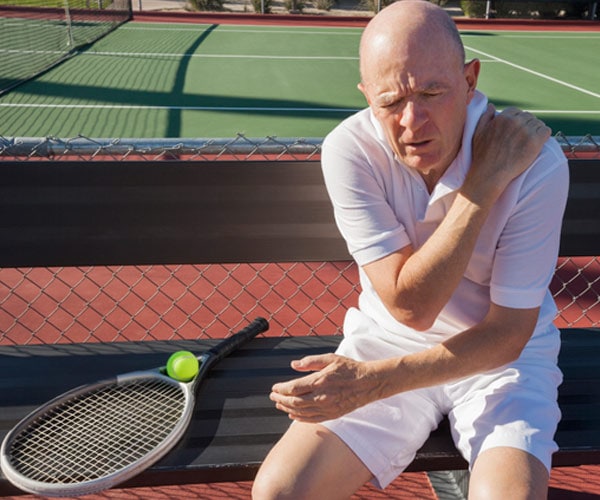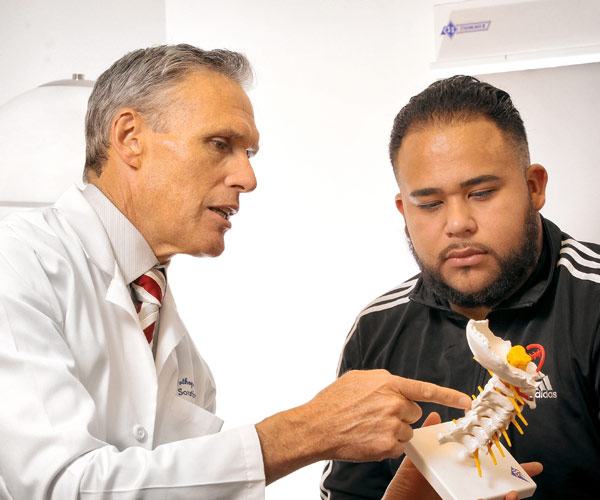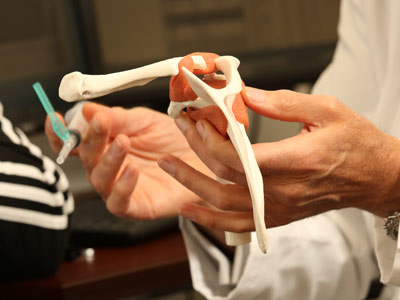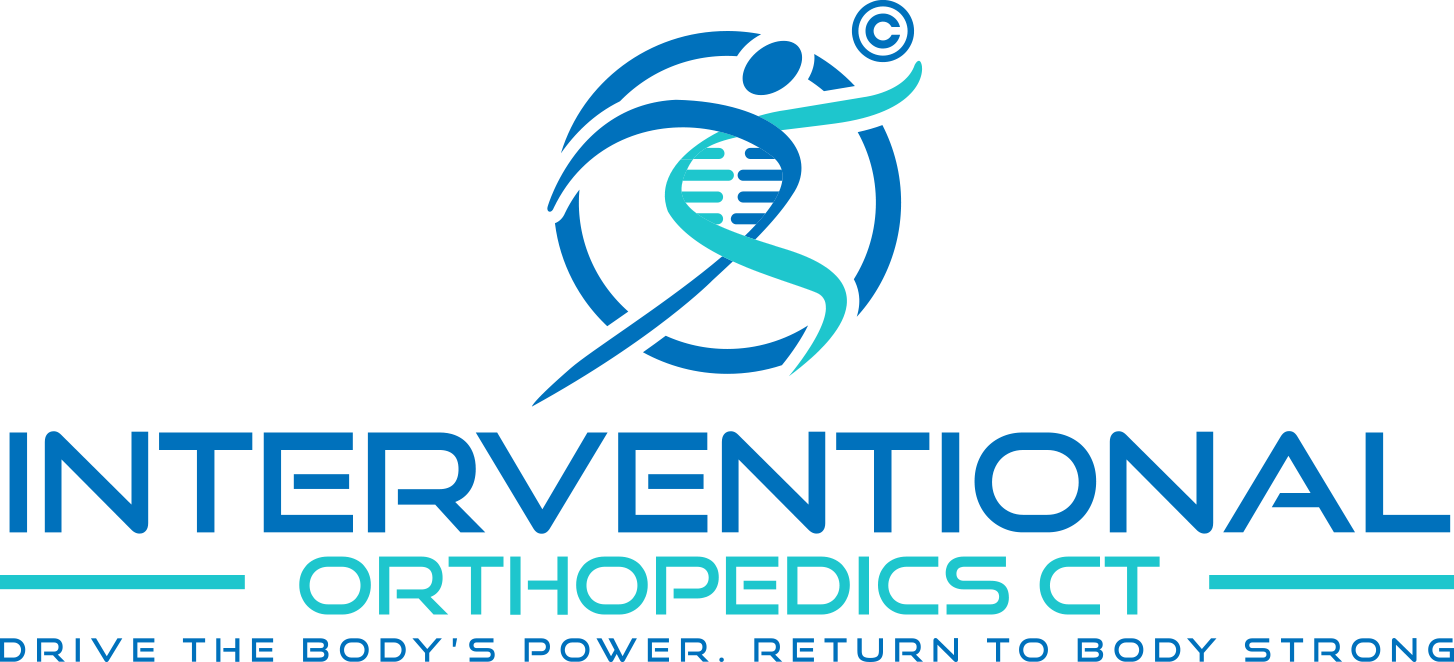Shoulder Arthritis
About Shoulder Arthritis
Your shoulders are a common area in which to develop arthritis. In a diseased shoulder, inflammation causes pain and stiffness. Your shoulder is made up of three bones: your upper arm bone (humerus), your shoulder blade (scapula), and your collarbone (clavicle). The head of your upper arm bone fits into a rounded socket in your shoulder blade. This socket is called the glenoid. A combination of muscles and tendons keeps your arm bone centered in your shoulder socket. These tissues are called the rotator cuff.
There are two joints in the shoulder, and both may be affected by arthritis. One joint is located where the clavicle meets the tip of the shoulder blade (acromion). This is called the acromioclavicular (AC) joint. Where the head of the humerus fits into the scapula is called the glenohumeral joint. It is important for your physician to determine which joint and/or structures and what type of arthritis you have. Although there is no cure for arthritis of the shoulder, there are many treatment options available. Using these, most people with arthritis are able to manage pain and stay active.

Symptoms of Shoulder Arthritis
The most common symptom of arthritis of the shoulder is pain, which is often made worse and even more uncomfortable with increased activity and movement. If the glenohumeral shoulder joint is affected, the pain is typically located in the back of the shoulder and may get worse with weather changes. Many patients complain of an ache deep in the joint. If the acromioclavicular (AC) joint is affected the pain is typically on the top of the shoulder and the pain can sometimes radiate or travel to the side of the neck.
Besides shoulder pain, another common symptom of shoulder arthritis is a limited range of motion. It may become more difficult to lift your arm to comb your hair or reach up to a shelf. You may hear a grinding, clicking, or snapping sound as you move your shoulder. As the disease progresses, any movement of the shoulder causes pain. Night pain is common and sleeping may be difficult.
Non-Surgical Treatment for Shoulder Arthritis
The initial approach to treating shoulder arthritis includes activity modification and lifestyle changes to avoid reaching and throwing activities to reduce pain. Oral medications, topical crèmes and applying ice to your shoulder to reduce inflammation may be helpful. For some patients, steroid injections may have some value as well.
Viscosupplementation Injections with a slippery cushioning gel like viscous substance may are no longer recommended by orthopedic guidelines as studies show no benefit when compared to sham or no treatment.
To learn more and get help for knee arthritis please Schedule an Appointment with Regenerative Orthopedic & Sports Medicine Specialist Daniel Southern, M.D. in Danbury or Wilton in Fairfield County Connecticut by calling 203-456-5717.


Surgical Treatment for Shoulder Arthritis
Surgical treatment for shoulder arthritis is limited to removing the most damaged tissues that may be affecting motion or causing pain or re-attaching torn tendons, ligaments, or the rim of cartilage surrounding the joint. Surgery cannot remove or stop the progression of arthritis and, even when performed in as minimally invasive manner as possible, it can contribute to progression of joint degeneration, pain, and loss of motion. When arthritis is very advanced causing extensive damage to the bony components of the joint, shoulder joint replacement therapy may be the only option.
In general, recovery time and rehabilitation from surgical treatment of shoulder arthritis can be somewhat lengthy and uncomfortable requiring careful pain management. In addition, there are some risks and possible complications of shoulder surgery including infection, pain, loss of motion, blood clots, and nerve damage.
To learn more and get help for shoulder arthritis please Schedule an Appointment with Regenerative Orthopedic & Sports Medicine Specialist Daniel Southern, M.D. in Danbury or Wilton in Fairfield County Connecticut by calling 203-456-5717.
Regenerative Orthopedic Medicine Treatment for Shoulder Arthritis
Regenerative procedures provide non-surgical treatment options for those suffering from pain related to osteoarthritis, joint injuries, spine pain, overuse conditions, and common sports injuries. These medical procedures are performed by highly-skilled doctors and are used to help reduce pain and improve function. They may help improve your quality of life, return to the activities you enjoy, and avoid the need for surgery or joint replacement*.
*DISCLAIMER: Like all medical procedures, regenerative procedures have a success and failure rate. Patient reviews and testimonials on this site should not be interpreted as a statement on the effectiveness of our treatments for anyone else.

